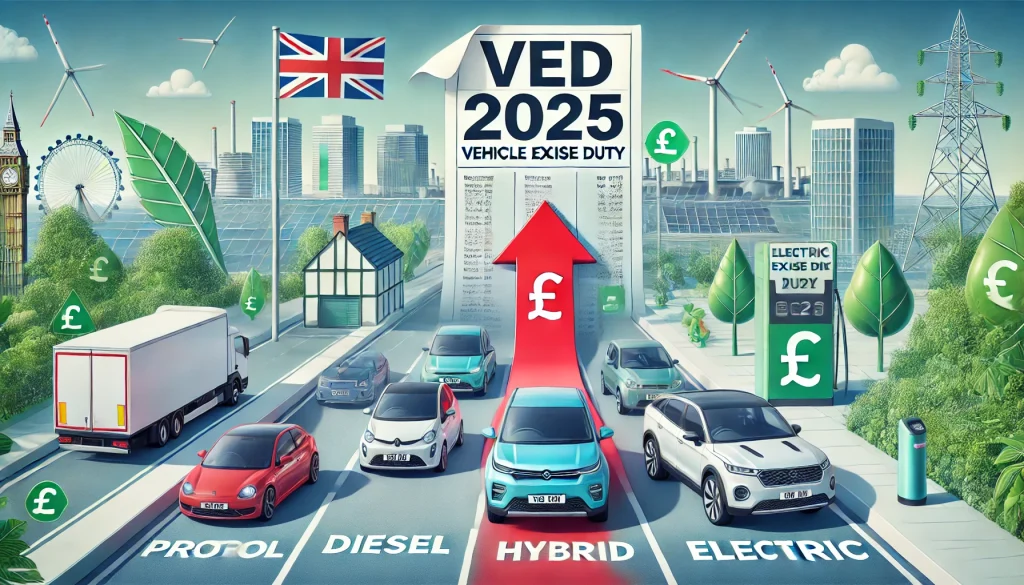
The UK government is implementing major road tax changes in 2025, impacting petrol, diesel, hybrid, and electric vehicle (EV) owners. These updates to Vehicle Excise Duty (VED) will take effect on April 1, 2025, and will introduce higher first-year tax rates and end tax exemptions for EVs.

At Todds of Campsie, we want to help you understand these changes and how they affect your vehicle costs. Here’s everything you need to know.
For the first time, electric vehicles (EVs) will no longer be exempt from road tax. The changes are as follows:
This is a significant shift, making EV ownership slightly more expensive.
New petrol, diesel, and hybrid vehicles will see increased first-year VED rates based on CO₂ emissions. The more emissions a vehicle produces, the higher the tax:
After the first year, all vehicles move to the standard £195 per year tax rate.
If you’re considering purchasing a new car in 2024, it may be worth factoring in these road tax increases when deciding between an EV, hybrid, or traditional fuel vehicle.
Vehicles registered between March 1, 2001, and March 31, 2017, will also see tax increases based on CO₂ emissions. Some of the key changes include:
These changes impact older petrol and diesel vehicles, making them slightly more expensive to run.
Quote from Jonathan Todd, General Manager at Todds of Campsie:
“These road tax changes will have a significant impact on vehicle owners, especially those considering an EV. At Todds of Campsie, we are committed to helping our customers navigate these updates and find the most cost-effective and efficient vehicle for their needs.”
At Todds of Campsie, we stock a range of fuel-efficient petrol, hybrid, and electric vehicles, ensuring you can make an informed decision that suits your budget and lifestyle. Our expert team is here to help guide you through the upcoming tax changes and find the best vehicle for you.
📍 Visit us today to explore our latest models or contact us for advice on road tax changes.
Understanding these road tax updates is crucial, whether you’re an existing car owner or planning to buy a new vehicle. Keep up to date with the latest motoring news by following Todds of Campsie.
For more information, visit gov.uk or speak to our team today!
Todds of Campsie
6 Courtauld Way
Campsie Industrial Estate
Londonderry
BT47 3DN